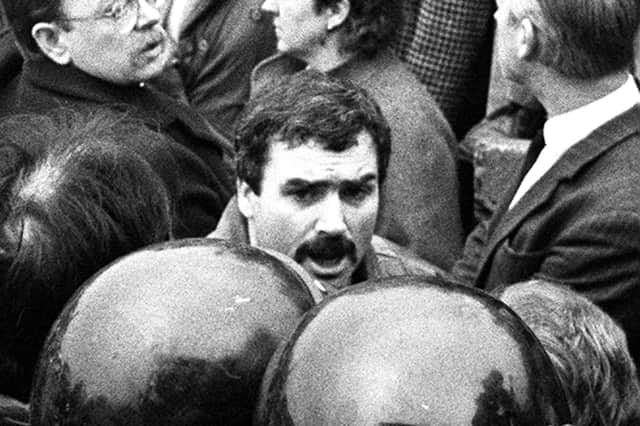Intense focus on potentially groundbreaking Operation Kenova report launch


The interim report follows a major investigation into the activities of an army agent, working within the Provisional IRA during the Troubles, known by the codename Stakeknife.
Op Kenova examined a number of cases where suspected informers were abducted by PIRA, and in some cases abducted and murdered.
Advertisement
Hide AdAdvertisement
Hide AdAs a member of PIRA’s so-called ‘nutting squad,’ Stakeknife was reported to have played a key role in serious offending while on the payroll of the army.
The agent is widely reported to have been west Belfast man Freddie Scappaticci, who was in his 70s when he died last year. Scappaticci repeatedly denied he was Stakeknife.
Last week the Public Prosecution Service announced that no prosecutions would be pursued after consideration of the last batch of files from the investigation.
Some 32 people, including former military personnel, former police officers and people linked with the IRA, were considered for prosecution on a range of charges from murder and abduction to misconduct in public office and perjury. However the PPS found there was insufficient evidence to pursue cases.
Advertisement
Hide AdAdvertisement
Hide AdSome former senior police officers have expressed concern that revealing the identity of Stakeknife – even if they are dead – will set a precedent that could seriously impede the recruitment of agents/informers in the future.
Some of the former officers have also expressed concern that any attempt to “infer guilt” when there is insufficient evidence to pursue a prosecution – even if the person is not named – would set a very unwelcome precedent for criminal investigations.
Former assistant chief constable Chris Albiston told the News Letter: "It is clear from the unusual but very detailed and helpful 'commentary' on his decisions which has been issued by the Director of Public Prosecutions, that almost all of the material which has been supplied to the DPP by Kenova is inadmissible – being based on intelligence, and even 'information,' which comes nowhere near the standard which is required for a criminal prosecution."
The PPS has indicated that 16 of those reported were “civilians” – believed to have been IRA members – and 12 retired military personnel. Two people linked to MI5, one ex-police officer and one former PPS prosecutor were also the subject of files sent for consideration.
Advertisement
Hide AdAdvertisement
Hide AdIt is understood the PIRA-linked individuals were reported for offences of murder, conspiracy to murder and false imprisonment.
The retired soldiers are alleged to have been ‘handlers’ dealing with Stakeknife, who were reported for the offence of misconduct in public office.
Jon Boutcher, who is now chief constable of the PSNI, led Operation Kenova until October 2023.
At a meeting of the policing board on Thursday, Mr Boutcher was asked if he shared the views of the current Kenova head Sir Iain Livingstone, who expressed “frustration” that no-one would be prosecuted.
Advertisement
Hide AdAdvertisement
Hide AdSir Iain said last week that the team had built “a strong and compelling case which we are frustrated will now not be tested before a court”.
Mr Boutcher responded: “I can say now I agree with Iain Livingstone and I will deal with all of this tomorrow.”
The BBC has reported that Kenova report will call for an apology from the government for what could have been prevented, and from republicans for the IRA murders and for how the victims’ families were intimidated and ostracised.